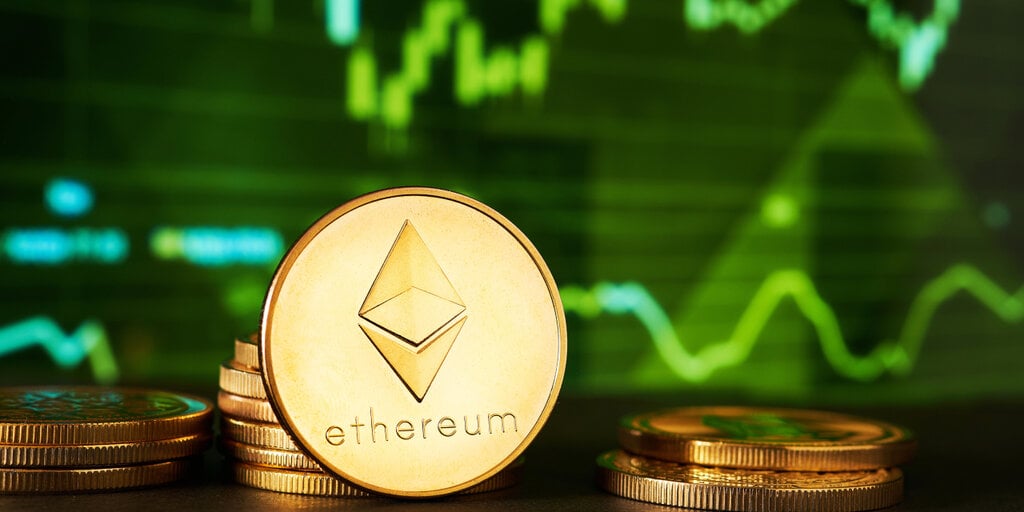Ethereum Hits $3,800 for First Time Since December 2021 - Decrypt
03/06/2024 10:18
Ethereum jumped above $3,800 Wednesday morning for the first time since December 2021, as anticipation mounts for its Dencun upgrade.
Ethereum jumped over $3,800 Wednesday morning, hitting its highest price since the end of 2021.
At time of publication, the Ethereum price has pulled back slightly, trading at $3,796.53, up 2.8% on the day, per data from CoinGecko. The cryptocurrency last traded over $3,800 on December 29, 2021, according to the price tracking site.
The cryptocurrency's price surge comes as staked Ethereum hit over $116 billion earlier this week, up 9% since the start of the year. Today, 31,320,207 ETH are currently staked, worth over $119 billion at ETH's current price, per data from beaconcha.in.
Ethereum's positive momentum also comes amid anticipation for the network's Dencun upgrade, set to be pushed to mainnet on March 13. Dencun will introduce proto-danksharding to Ethereum, a measure designed to reduce transaction costs for layer-2 blockchains, addressing issues around scalability.
Following its full implementation, Dencun is expected to enable Ethereum to cheaply handle more than 100,000 transactions per second. According to Terence Tsao, a developer at Offchain Labs, which builds Arbitrum, Dencun should cause gas fees on layer-2 networks to drop by as much as 75%, potentially enabling crypto companies to cover users' gas costs on layer-2 networks.
Dencun also introduces "blobs," which temporarily compress transaction data off-chain, in order to minimize storage and processing costs on Ethereum. “We will be able to handle data much more efficiently, and in a cheaper way as well,” Ethereum core developer Mario Havel told Decrypt last year.
Another feature set to arrive with the Dencun upgrade is EIP-7044, an Ethereum Improvement Proposal that enables ETH validators and stakers to store instructions for when to exit their position. That means validators could automatically exit their position if their node falls inactive, thus avoiding mounting fines for failing to process transactions.
Edited by Stacy Elliott.